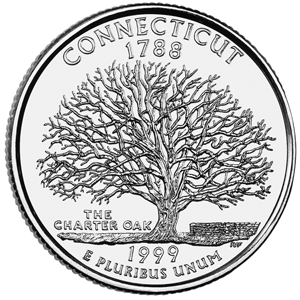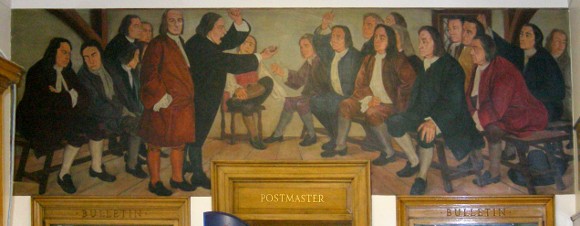
On , John Wise met with some of the other “principal inhabitants” of Ipswich in New England, and decided that a new tax that had been imposed by governor Edmund Andros, without consulting the colony’s General Assembly, was bogus and “that it was not the town’s duty any way to assist that ill method of raising money.”
, a town meeting was assembled, ostensibly “for choosing a commissioner to join with the Selectmen to assess the inhabitants according to an act of His Excellency the Governor and Council, for laying of rates.” Instead:
The town then considering, that this act doth infringe their liberty, as freeborn English subjects of His Majesty, by interfering with the Statute Laws of the land, by which it was enacted, that no taxes should be levied upon the subjects without the consent of an Assembly, chosen by the Freeholders for assessing of the same, they do therefore vote, that they are not willing to choose a commissioner for such an end without said privilege, and, moreover, consent not, that the Selectmen do proceed to lay any such rate until it be appointed by a General Assembly, concurring with Governor and Council.
A number of those at the town meeting were then arrested, hauled to a jail in another town, and then put on trial before a jury hand-picked by the prosecution and a judge who referred to the defendants as “criminals” over the course of the trial. John Wise made a statement under oath about the case, from which these excerpts come:
The evidence in the case, as to the substance of it, was, that we too boldly endeavoured to persuade ourselves we were Englishmen and under privileges, and that we were, all six of us aforesaid, at the town-meeting of Ipswich aforesaid, and, as the witness supposed, we assented to the aforesaid vote, and, also, that John Wise made a speech at the same time, and said we had a good God and a good King, and should do well to stand to our privileges. The jury return us all six guilty, being all involved in the same information. We were remanded from verdict to prison, and there kept one and twenty days for judgment.
Fines and court costs followed, and, at first, the Andros tyranny was triumphant. But Wise and company had the last laugh. On , in the wake of the Glorious Revolution in the home country, a “Declaration of the Gentlemen, Merchants, and Inhabitants of Boston” was issued, which proclaimed the assault on the rights of dissenting English colonists to be part of the same plot of “the great Scarlet Whore” to crush Englishmen under the thumb of the papists (that is, James Ⅱ) again.
The Declaration is a good predecessor of the better-known one of , but much more interesting reading. Here’s a nice excerpt:
…extraordinary and intolerable Fees extorted from every one upon all occaſions, without any Rules but thoſe of their own inſatiable Avarice and Beggary; and even the probate of a Will muſt now coſt as many Pounds perhaps as it did Shillings heretofore; nor could a ſmall Volume contain the other Illegalities done by theſe Horſe-leeches in the two or three Years that they have been ſucking of us…
The Declaration then quoted one of the judges in the Wise case:
…it was a maxim delivered in open Court unto us by one of the Council, “that we muſt not think the Priviledges of Engliſh men would follow us to the end of the World:” Accordingly we have been treated with multiplied contradictions to Magna Charta, the rights of which we laid claim unto. Perſons who did but peaceably object againſt the raiſing of Taxes without an Aſſembly, have been for it fined, ſome twenty, ſome thirty, and others fifty Pounds.…
Then followed a revolution. Andros and his horse-leeches (including Judge Dudley who had tried the case against Wise and the rest) were overthrown and imprisoned (legend has it Andros was caught trying to escape disguised as a woman).
The “Charter Oak” (you can see it on the back of the Connecticut state Quarter design) comes from this period. Andros tried to get the Connecticut colonial authorities to renounce the charter they had been granted by the King and to instead give Andros total authority. At the meeting where this was to take place, the colonists blew out the candles and under cover of darkness took the charter away and hid it in a hollow in the oak tree.

